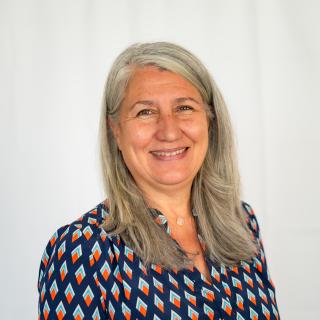Our North Star
An Integrated, Equitable, High-Quality System of Early Care and Education
May 24, 2021
The pandemic brought into stark relief the critical need for early care and education (ECE) for all families. As a result, there is an unprecedented amount of conversation about the education and care needs of the youngest children in the United States. Early care and education systems across this country are poised for transformation and there are terrific leaders around the country who have been waiting for this moment and are ready to implement some big ideas. National Institute for Early Education Research (NIEER) and the National Collaborative for Infants and Toddlers (NCIT) are publishing a series of blog articles that will spotlight what some of these leaders are thinking about how to use new funding opportunities to build a better integrated, more equitable, and higher quality system of early care and education for children beginning prenatally to age 5.
With the passage of the American Rescue Plan and the potential of the American Families Plan, the possibilities for transforming state systems of early care and education are both exhilarating and overwhelming. President Biden’s American Families Plan would greatly expand access to high-quality early care and education for many families through two approaches: substantially increasing funding for child care and creating a funding stream to support universal (high-quality) preschool for 3- and 4-year-olds. In previous years and legislation, it is often an either/or scenario: child care or pre-K. While the president has proposed an extraordinary investment in young children and families, federal support for high-quality early education programs is not new.
For decades, advocates and implementers have operated in a scarcity mindset. Now suddenly, we are at a point where public attention and public investments are lining up behind the idea that access to early care and education from birth through Kindergarten entry is essential. There is growing recognition of the relationship between “care” and “education.” The research is clear that babies are born learning, and nurturing responsive caregiving at home, in a community-based center, or in a school is the essential ingredient for early educational success and lifelong health and well-being.
NCIT focuses on the prenatal to age three period for the simple reason that these years are the bricks and mortar of development—what happens during this period can have substantial effects on both short-and long-term outcomes in learning, behavior, and physical and mental health. When we support children as well as their families in these earliest years, infants grow into healthy kids who are confident, empathetic, and ready for school and life. Every child, regardless of race/ethnicity, gender, or the zip code in which they were born, should have equal opportunity to thrive and succeed in life. The crises that challenge our nation today require us not to “return to normal,” but instead to provide a once in a generation opportunity to make a powerful new public commitment to our youngest children and their families. Increasing access to high quality early care and education—whether provided in a home or another community-based setting—supports both a child’s growth and development and enables parents to work.
NIEER’s mission is “to improve the learning and development of young children by producing and communicating knowledge that transforms policy and practice.” While we are best known for the research and work we do on supporting high-quality preschool, our research and policy efforts focus on children within a birth to age 8 continuum. At NIEER, we conduct research and provide research-based technical assistance and policy analysis on the educational and developmental well-being of infants and toddlers, preschoolers, and on the governance and funding of early learning programs and systems. Aside from Head Start, programs for young children are primarily regulated and administered at the state and local levels through several offices or agencies that are responsible for various functions including the development of standards, allocation of funds and accountability mechanisms, use of data for decision making, and supports for programs to achieve the highest level of quality. Typically, a state administers its preschool program by a department or office within its education agency; but most preschool programs operate within a mixed-delivery system serving children in both public school and private settings.
As we move toward a more unified system, now is the time to think strategically about the ECE system and what supports states may need. Many states have been working over the years to integrate its systems of “care” and “education” into a more comprehensive prenatal to five approach. More recently, a focus on equity—ensuring each and every child, regardless of race/ethnicity, geography, socio-economic, or other factor—is compelling states to break down their silos and rethink their systems from the perspectives of the diverse needs of young children and their families. In the coming weeks we will feature interviews with early childhood administrators in Virginia, Maryland, Louisiana and South Carolina as they discuss how they are building on the goals and progress their states have made to date and using this opportunity to use federal funds to strengthen their early care and education systems. We hope this series will inspire other early education leaders across the country to wisely invest these one-time funds.
If you are interested in contributing to the blog series please contact Lori Connors-Tadros at ltadros@nieer.org.
The Authors
Allison Friedman-Krauss is an Associate Research Professor at NIEER where she is also the Associate Director for Policy Research and Director of the Infant and Toddler Policy Research Center.
GG Weisenfeld is a Senior ECE Policy Specialist at the National Institute for Early Education Research (NIEER) at Rutgers University, Graduate School of Education.
Dr. Lori Connors-Tadros is a recognized national leader in early care and education policy and research and provides technical assistance to states to use research to craft and implement effective policies. Lori has deep expertise in comprehensive state early childhood systems, finance and governance for effective policy implementation, leadership and agency capacity to implement policy and improve access, and research and policy to improve outcomes for young children.
About NIEER
The National Institute for Early Education Research (NIEER) at the Graduate School of Education, Rutgers University, New Brunswick, NJ, conducts and disseminates independent research and analysis to inform early childhood education policy.



